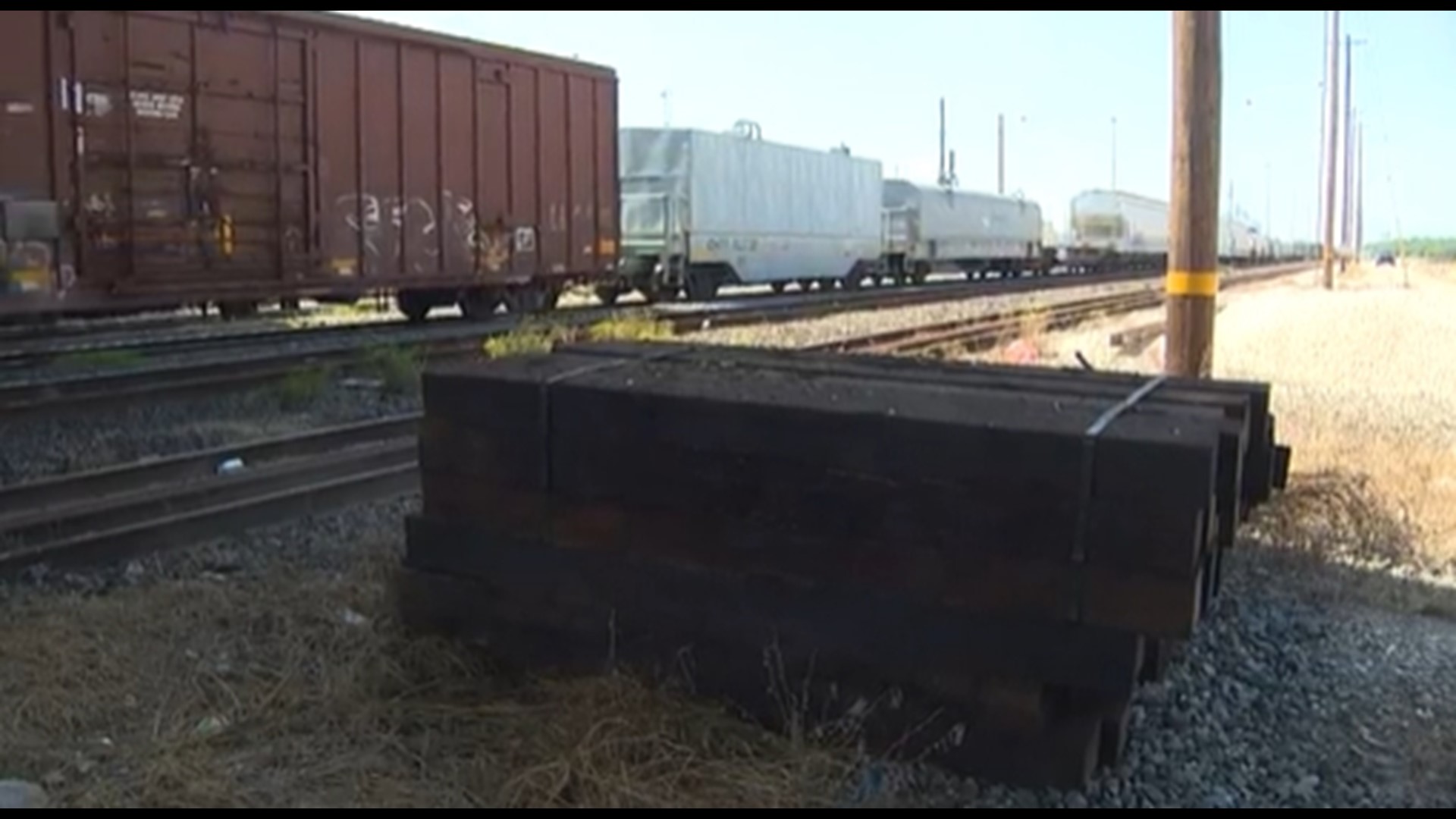HOUSTON — The Houston Health Department began notifying residents Friday morning that surface soil samples collected in July around the contaminated Union Pacific rail yard contain dioxin, a highly toxic chemical compound associated with cancer and other severe health risks.
Houston health officials released the results to the public Friday morning. They said the laboratory analysis received by the department indicates all 42 collected soil samples were contaminated with dioxin.
Additionally, 27 percent of the dioxin sample concentrations exceed the Environmental Protection Agency's non-carcinogenic risk-based screening level of 51 nanograms per kilogram in soil for children, health officials said.
Fifth Ward and Kashmere Gardens residents have complained of cancer concerns for decades. A study by the Texas Department of State Health Services conducted last year showed that children in the areas surrounding the site had elevated levels of leukemia.
"Residents of the Fifth Ward, a historically Black and underserved community, have dealt with negative health effects from hazardous waste and chemicals for decades. Both children and adults in the area are subject to higher rates of certain types of cancers, and it’s time that we ensure they have the clean air and water they deserve," Harris County Attorney Christian D Menefee told us in July. "Union Pacific should be held accountable for the harm this facility has caused to its neighbors."
Health officials said the testing of the soil samples from residential properties and right of ways indicates the highest concentrations of the chemical are at the fence line and decrease in areas farther away from the 33-acre site.
RELATED: Community continues fight to clean up toxic railroad site being blamed for 'cancer clusters'
The property is a former railroad creosote treatment facility located in the Fifth Ward and Kashmere Gardens neighborhoods near the intersections of Liberty Road and Lockwood Drive and Liberty Road and Altoona Street.
Creosote treatment at the site began in 1899 and did not cease until 1984, resulting in soil and groundwater contamination.
“These tests results raise an added level of concern. No longer are we just talking about a dangerous plume beneath the surface, but a cancer-causing substance, dioxin, at the surface level. UP and the state must now change their entire remediation plan,” Houston Mayor Sylvester Turner said. “We have promised residents that the city will continue to test, monitor and work in their best interest.”
Even though the laboratory analysis recommends additional sampling, there is a strong link between environmental conditions within these communities and human health, said Stephen L. Williams, the department’s director.
While residents were notified Friday morning, the health department started alerting neighborhood and community leaders from the Fifth Ward and Kashmere Gardens and elected officials on Thursday.
The department said they also provided the sampling results to the EPA, Texas Department of State Health Services and Texas Commission on Environmental Quality for further action.
Union Pacific sent over a statement in response to the results saying dioxin levels are well below state standards for cleanup.
Union Pacific just received the results of the city of Houston's study, after repeatedly asking for the data. The report shows the dioxin levels in the city's samples are well below the Texas Commission on Environmental clean-up standards for dioxins in residential areas. Union Pacific understands residents will reasonably want more information. Attributing widespread dioxin only to operations at the former Southern Pacific Houston Wood Preserving Works site is unreasonable and inaccurate. Union Pacific will continue to work with the city of Houston, Harris County and the Bayou City Initiative to collect data and to formulate a sound, science-based plan for moving forward.
According to the U.S. Environmental Protection Agency, dioxin-like compounds are found in soils everywhere due to a variety of sources. Among them: fuel combustion, including burning of domestic refuse; cigarette smoke; forest fires; and incineration of medical and hazardous wastes. Manufacturers, metal foundries, auto shops, electrical contractors, printing plants, laundromats and other businesses all operated in the area over the span of 140 years.
What are dioxins?
Dioxins are a group of toxic chemical compounds that can cause certain types of cancer, reproductive and developmental problems, damage to the immune system and can interfere with hormones. They are considered persistent organic pollutants by the EPA because they take a long time to break down once in the environment.
The health department published a full report of the results and a map with all of the soil sampling locations on its website.
The health department said although the contaminated site falls under the jurisdiction of the TCEQ, the health department is it is taking steps to fill in gaps to address community concerns.

